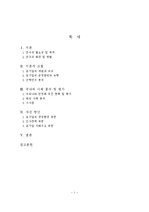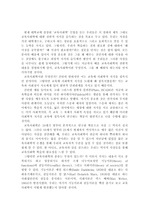

PARTNER
검증된 파트너 제휴사 자료
경쟁정책에서 경제적 자유와 효율성 간의 상충관계 (Competition Policy between Economic Freedom and Efficiency)
26 페이지
최초등록일 2025.03.11
최종저작일
2017.03

-
서지정보
· 발행기관 : 한국질서경제학회
· 수록지 정보 : 질서경제저널 / 20권 / 1호 / 1 ~ 26페이지
· 저자명 : 박영수, 문상현
초록
오늘날 경쟁정책 논의의 핵심은 경쟁정책에서 경제적 자유(경쟁자유)와 경제적 효율성(경제성장) 간의 긴장관계를 어떻게 조정하고 해결하느냐의 문제다. 즉, 경쟁을 어떻게 정의할 것인가에 대한 관점은 경제적 자유를 기반으로 경쟁의 간접적인 규칙의 조정을 목표로 하는 질서경제학적 입장과, 후생극대화를 기반으로 경쟁의 직접적인 결과의 조정을 목표로 하는 후생경제학적 입장으로 대별된다. 후생경제학적 접근방식은 경쟁정책의 목표를 소비자의 후생극대화에 두고 있다. 이에 따르면 경쟁과정에 대한 국가의 간섭은 오히려 경쟁을 제한하거나 경쟁을 왜곡시킬 우려가 크다. 반면에 체제론적 접근방식은 경쟁정책의 목표를 자유의 보장에 두고 있으므로 국가는 명백한 경쟁제한 행위에 대해서 당연위법 규정을 통해 간접적으로 제한해야 한다고 주장한다. 또한, 경제분석 중시 접근방법(more economic approach)은 유럽의 경쟁정책에 있어서 새로운 방식의 경쟁정책 모델을 나타낸다고 할 수 있다. 그런데 중요한 사실은 경제분석 중시 접근방법만큼 지향점을 일관되게 후생경제학적 입장에 맞추고 있는 접근방법은 없다는 것이다. 이러한 맥락에서 경제분석 중시 접근방식은 시카고학파의 일관된 연장선이라고 하겠다. 끝으로 질서경제학적 경쟁정책의 기본원칙은 다음과 같이 요약할 수 있을 것이다. 첫째, 경쟁정책은 자유를 보호하는 데 의무를 다해야 한다. 둘째, 보편적 규율의 사고에 부합하여 경쟁정책은 본질적으로 당연위법규정에 근거를 두어야 한다. 셋째, 자유의 보호와 정치적 특히 비경쟁적 목표 간의 이해 상충이 경쟁당국에 의해 조정되기 위해서는 경쟁정책은 언제나 정치 중립적으로 제도화 되어야 한다. 이러한 점에서 질서경제학적 경쟁정책 모델은 경쟁정책에서의 경제적 자유와 효율성 간에 야기되고 있는 상충관계를 조정하고 완화할 수 있는 경쟁정책의 이상을 실현하는 방안이라는 점에서 많은 시사점을 제공해주고 있다.영어초록
The more economic approach was implemented in the EU competition policy. Yet, the debate whether the normative foundations of competition law are vital has received new fuel. On the one hand, these normative foundations were derived from welfare economics which emphasize economic efficiency as the ultimate goal of competition law. On the other hand, the order-economic approaches, based on the Freiburg School, focus economic freedom. The paper examines pros and cons of each concept and discusses the perspectives of an approach favoring the order-economic concept. Market dominance serves as an example to show that the more economic approach does not at all grant better results in competition policy. Neither consumer welfare nor static-allocative standards are sufficient criteria for competition law.
Hoppmann developed the analytical framework of the model of freedom of competition contrary to the Kantzenbach’s model of optimal intensity of competition and American models of workable competition. He emphasized that competition policy should be suited to secure construction of the form of market process which provides environment of freedom of competition both for consumers and producers in the market. Especially he maintained that competition policy needs to be oriented toward eliminating effectively all behaviors which limit freedom of competition. He pointed that discretion and interference of the competition authorities should be maintained possibly at low level. In this respect he argued that the main duty and continuing issue of a nation should be to protect competition from all behaviors which constrain market competition.
‘More economic approach’considers competition as means to the goal of enhancement of comsumer welfare and assurance of productive and redistributive efficiency. According to this approach, behaviors which restrict competition could be permitted when their negative welfare effects could be compensated more by their positive efficiency effects. This reflects that recently competition policy is in a transition from per se illegality rule toward rule of reason.
However the order economic approach is still often mentioned as a critical viewpoint to the recent trend of rationality principle in the competition policy. This shows that the order economic approach, in spite of some theoretical flaws and practical problems when applied real world competition policies, is being reevaluated as the model which could be a basis for future rational competition policies theoretically and practically.참고자료
· 없음태그
-
자료후기
-
자주묻는질문의 답변을 확인해 주세요

꼭 알아주세요
-
자료의 정보 및 내용의 진실성에 대하여 해피캠퍼스는 보증하지 않으며, 해당 정보 및 게시물 저작권과 기타 법적 책임은 자료 등록자에게 있습니다.
자료 및 게시물 내용의 불법적 이용, 무단 전재∙배포는 금지되어 있습니다.
저작권침해, 명예훼손 등 분쟁 요소 발견 시 고객센터의 저작권침해 신고센터를 이용해 주시기 바랍니다. -
해피캠퍼스는 구매자와 판매자 모두가 만족하는 서비스가 되도록 노력하고 있으며, 아래의 4가지 자료환불 조건을 꼭 확인해주시기 바랍니다.
파일오류 중복자료 저작권 없음 설명과 실제 내용 불일치 파일의 다운로드가 제대로 되지 않거나 파일형식에 맞는 프로그램으로 정상 작동하지 않는 경우 다른 자료와 70% 이상 내용이 일치하는 경우 (중복임을 확인할 수 있는 근거 필요함) 인터넷의 다른 사이트, 연구기관, 학교, 서적 등의 자료를 도용한 경우 자료의 설명과 실제 자료의 내용이 일치하지 않는 경우
찾으시던 자료가 아닌가요?
지금 보는 자료와 연관되어 있어요!
문서 초안을 생성해주는 EasyAI




